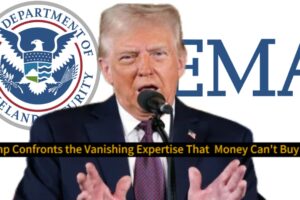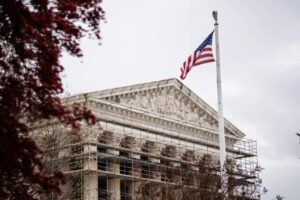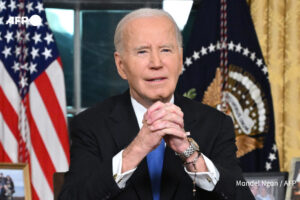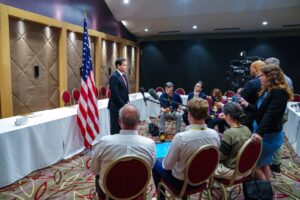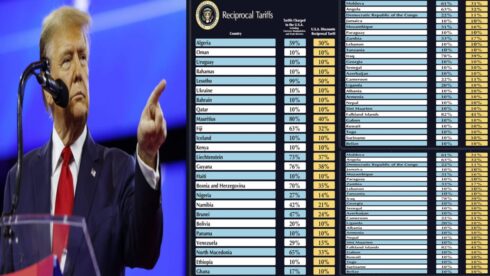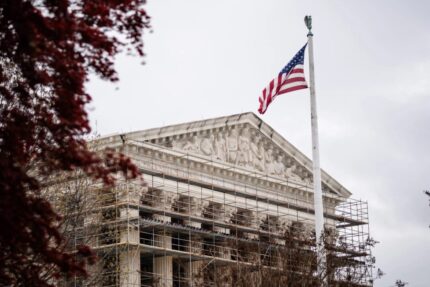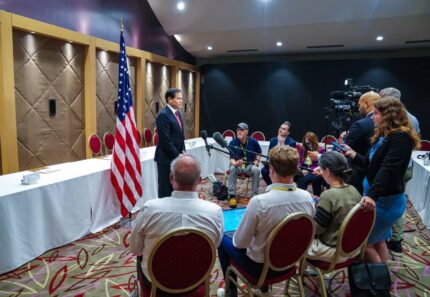Donald Trump has once again reshaped global trade dynamics by imposing a 14% tariff on Nigerian exports to the United States. In his latest economic move, the U.S. president justified the decision as part of his “America First” agenda, aimed at protecting domestic industries from what he calls “unfair trade practices.” Speaking at a rally, Trump emphasized that these tariffs will ensure that the U.S. economy remains competitive and that American workers are not undercut by lower-cost imports.
Trump’s tariff on Nigeria primarily targets key exports such as agricultural products, textiles, and raw materials, sectors that majorly contribute to Nigeria’s economy. Analysts predict that this move could disrupt Nigeria’s trade balance, as the U.S. remains a major destination for its goods. Despite backlash from Nigerian officials, Trump insists that the tariffs are necessary to correct trade imbalances and foster fair competition for American businesses.
Donald Trump Expands Tariff List to Multiple Nations
Donald Trump did not stop with Nigeria. His administration also imposed tariffs on several other countries, further escalating global trade tensions. The latest round of tariffs includes steep duties on imports from China, Vietnam, India, and the European Union, with rates ranging from 10% to 46%. According to Trump, these tariffs will “level the playing field” and push foreign governments to engage in what he describes as “reciprocal trade.”
The full list of affected countries reveals a broad targeting strategy. China faces a 34% tariff, Vietnam 46%, India 26%, and the EU 20%. Trump has stated that he is willing to negotiate tariff reductions only if these nations reduce their own trade barriers against U.S. goods. “They have taken advantage of us for too long,” Trump declared. “It stops now.”
Donald Trump Justifies Tariffs as an Economic Strategy
Donald Trump has long positioned himself as a champion of U.S. manufacturing and economic independence. He argues that these tariffs will encourage American companies to produce domestically rather than rely on cheaper foreign goods. In his view, decades of trade agreements have weakened U.S. industries, and these tariffs represent a necessary correction.
Economic experts, however, remain divided on the effectiveness of Trump’s approach. While some acknowledge that tariffs can boost domestic production, others warn that the increased costs will ultimately be passed on to consumers. Trump, however, remains undeterred. “We are bringing jobs back. We are bringing wealth back. We are putting America first again,” he proclaimed during a recent interview.
Donald Trump Faces Global Backlash Over Tariff Decision
Donald Trump’s tariff policies have sparked strong reactions from affected nations. Nigerian officials have condemned the 14% tariff as “unfair and unnecessary,” warning that it could strain diplomatic relations. Meanwhile, European and Asian leaders have criticized the broader tariff strategy, with some nations threatening retaliatory measures.
The European Union, in particular, is considering counter-tariffs on American exports, including automobiles and agricultural products. China has also warned that it may impose its own duties on U.S. technology imports. Despite the criticism, Trump remains steadfast, arguing that these tariffs are the only way to ensure that America is no longer “ripped off” in international trade.
Donald Trump’s Trade War and Its Impact on Markets
Donald Trump’s aggressive trade policies have sent shockwaves through global financial markets. Following the tariff announcement, stock markets experienced significant volatility, with industries reliant on international trade seeing sharp declines. The technology and automotive sectors, in particular, have voiced concerns over the potential rise in production costs due to these tariffs.
Despite market fluctuations, Trump maintains that his strategy will yield long-term economic benefits. “The stock market goes up and down, but what we are doing is making America stronger,” he asserted. Some U.S. companies, however, fear that retaliatory tariffs from foreign nations could hurt their exports, potentially leading to job losses.
Donald Trump Promises More Tariffs if Trade Practices Don’t Change
Donald Trump has made it clear that this is just the beginning. If foreign nations do not comply with his demands for fairer trade agreements, he has threatened to impose even higher tariffs. “We have all the leverage,” Trump declared. “They need us more than we need them. If they want access to the greatest economy in the world, they have to play fair.”
As the global trade landscape shifts under Trump’s policies, businesses and consumers alike will be closely watching the impacts. While Trump sees himself as the defender of American industry, the long-term effects of these tariffs remain uncertain. Whether they will lead to economic prosperity or unintended consequences will ultimately be decided in the months and years ahead.

